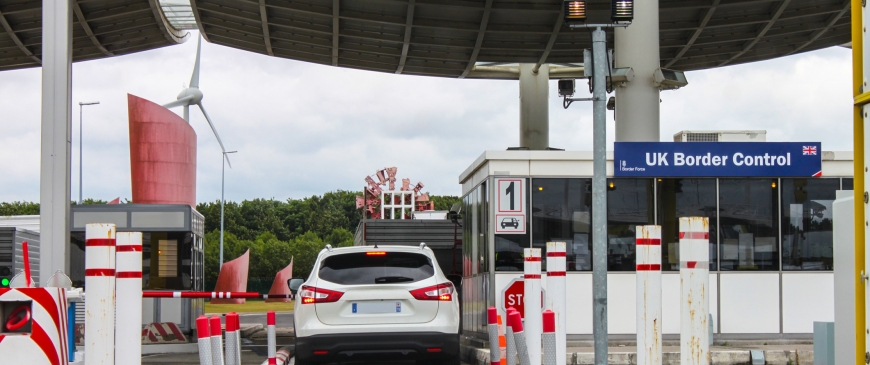
Brexit would be a victory for xenophobes, we must not turn back the clock
Britain’s EU referendum will be a vote on immigration. The out camp know that voters are aware of the economic and political risks of Brexit, but hope that their resentment of "uncontrolled" immigration from the EU will trump these concerns.
Growing up in a Yorkshire village in the latter half of the '70s and the '80s, the idea of significant numbers of people coming to live in Britain, let alone Yorkshire, was just funny. The Irish aside, there just weren’t any. And they would not have been received warmly. The bigotry was jarring, the suspicion of foreigners unapologetic. Yorkshire was not exceptional; much of Britain was like this.
Things have changed enormously for the better over the thirty years since. From being home to one of the lowest proportion of people from other EU countries in the EU in the mid-1980s, Britain is now home to a comparable proportion of people from other EU countries as Germany and France.
Over this period, the UK has gone from being one of the more insular EU countries to one of its more open and cosmopolitan ones. Openness to immigration is sign of a flourishing, confident society; hostility to it an indicator of a fearful, resentful one. It is no surprise that increased openness to foreigners has coincided with a marked improvement in Britain’s relative economic performance.
Whatever the small minority of internationalists among the Brexiteers say, a vote to leave the EU will be a vote against openness. Brexiteers like to argue that they are not against immigration, only "uncontrolled" immigration. And that freed from the EU Britain will be free to pick and choose who it admits. This is pure dissembling. If a UK of 65 million struggles to cope with hosting 1.4 million white, largely English-speaking Eastern Europeans who are on average better educated than the natives, are we really to believe that it will open up to the rest of the world following Brexit? Britain certainly won’t increase immigration from the non-white Commonwealth. After all, it could do so now but chooses not to. Nor is Britain about to open up to the white Commonwealth or the US, not least because they will not reciprocate. Quitting the EU will mean less immigration, not just a different system for allowing migrants into the country.
A big chunk of the British population would no doubt welcome this. I think it would be sad and a step back for the country. This is not because I am selfish and don’t care about those on low incomes or because I dislike my country’s culture. I’m certainly well-paid, at least compared with most of the population. But all the research shows that immigration is positive economically. Where there are negative effects for particular groups these can be offset by public policy, which I’d be happy to pay more tax towards. If being anti-British means being uncomfortable with scape-goating foreigners for home-grown problems or refusing to give sanctuary to refugees, then I guess I’m anti-British. But I don’t think there is anything inevitable about Britain responding to immigration and the refugee crisis in the way it has; after all, Germany has responded very differently, and is no less German for that.
If opposing unrestricted EU immigration is all about protecting British culture and the British working class, why do the Brexiteers not oppose free trade too? After all, this has had a far more negative impact on lower-skilled British workers than immigration, by accelerating the collapse of manufacturing employment. But most Brexiters want more, not less free trade. And why don’t Brexiteers favour income redistribution to reduce inequalities aggravated by globalisation? Or education reforms to tackle inequalities of opportunity perpetuated by the dominance of public schools? At present, the opposite is happening: tax and benefit changes are making the poor poorer, and social background is becoming a stronger determinant of educational attainment.
Some opponents of unrestricted immigration from the EU accept that is economically beneficial, but that these economic benefits are more than offset by the harmful social effects of immigration. At root, this is a "people feel like foreigners in the own country" argument. It is not a new one, but was often made in the post-war period when significant numbers of people moved to the UK from the Commonwealth. Basically, it boils down to: we don’t like foreigners. After all, there is no resentment about internal migration within the UK from poorer to richer areas.
If one doesn’t pander to this populism, one is accused of being undemocratic, patronising or "out of touch" with the people. Indeed, a whole cottage industry of apologists has sprung up, claiming to speak for the people when it comes to allegedly disorientating effects of immigration. Yet many of these apologists are happy that our parliamentary democracy is able to take action against racial and sexual discrimination, in the face popular opposition, or to resist pressure for the restoration of the death penalty. So why their preference for crude majoritarianism when it comes to immigration? We’re a parliamentary democracy for good reason.
I’m glad there are now more people from other EU countries living in the UK and hope that more are not put off from moving here by the crude and often offensive tone of public debate about immigration. I would hate for that village to revert to the way it was. Being from somewhere else (or even from outside Yorkshire) is no longer a trigger for abuse. Do people really want to turn back the clock?
Simon Tilford is deputy director of the Centre for European Reform.
